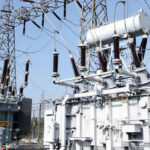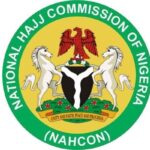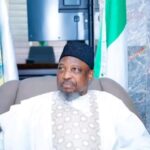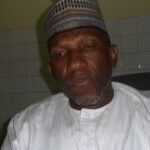After a review of the Hajj 2024 operations and submission of our report on the Hajj to our regulator, the National Hajj Commission of Nigeria (NAHCON), we find it imperative to address the general public on some of the challenges and inadequacies and most of them came from the NAHCON.
While appreciating our service provider for their effort to improve on the Muna accommodation at camp D this year which was far better than the one provided last year, there were however, reported inadequate convenience (toilets). There was only one toilet block that served over 2000 pilgrims.
This has led to hardship for the pilgrims. A situation where a person spent a minimum of 30 minutes on queue to pass urine is not right by any standard.
There was also an acute shortage of space to accommodate the number of pilgrims that arrived late to Muna which necessitated the opening of another camp about 300m away.
- Hajj: Convene meeting on operational challenges, Lagos tells NAHCON
- I want to act as an African princess with superpowers – Japari
The logistics in terms of supply of food and other necessities to the new camp made pilgrims suffer unbearable difficulties. Same challenges of space shortage affected the Arafat experience.
People were jam-packed in an inhumane condition in some tents, while several decided to stay outside in the scorching heat of the day of Arafat.
The food experiences were the same as last year. In fact, the quality, taste and menu of last year’s were better than this year. We beg to ask how Pakistani chefs can be able to deliver Nigerian cuisine and taste.
The worst ever experience in this year’s Hajj was at the tent A. The pilgrims that were able to access the service experienced their worst nightmare; overcrowding, poor sanitary condition and bullying from security personnel which forced some to abandon the camp and return to Makkah to complete their Hajj rites.
With the new policy of government withdrawal of subsidy on Hajj matters, we therefore wish to call on NAHCON to stop all charges on our members including the dollar equivalent we pay as service fees.
While we agree that NAHCON has the right to charge licensing fees, we believe the Hajj license is the most expensive of any licensing regime in Nigeria.
The need to investigate the laws and acts that regulate Hajj affairs is very urgent and we implore those saddled with such responsibilities to act now to safeguard the Nigerian pilgrims.
Finally, we call on the federal government to, as a matter of urgency, set up an inter-ministerial and credible panel to review this year’s Hajj activity with the aim of restoring sanity into the future of the operation.
AbdulLateef Ekundayo Yusuf is the National President, Association for Hajj and Umrah Operators of Nigeria (AHOUN)

 Join Daily Trust WhatsApp Community For Quick Access To News and Happenings Around You.
Join Daily Trust WhatsApp Community For Quick Access To News and Happenings Around You.



